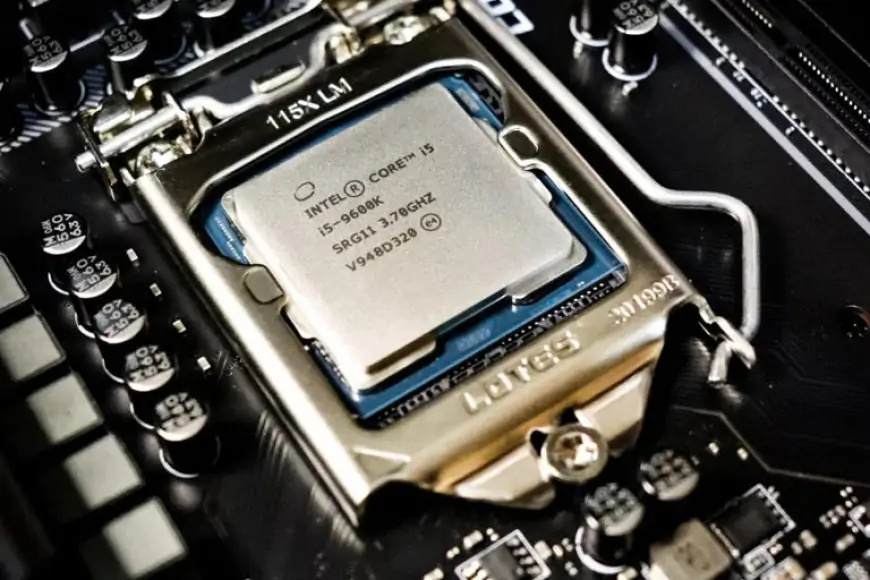China prohibits the use of Intel and AMD processors in government computers
China mandates the exclusion of Intel and AMD processors from government computers, emphasizing a shift toward domestic technology solutions.

China has implemented new guidelines to phase out US microprocessors from companies like Intel and AMD in government PCs and servers, as part of an effort to promote homegrown technology over foreign alternatives. These stricter procurement rules also aim to favor domestic options over Microsoft's Windows operating system and foreign-made database software.
This initiative aligns with China's broader strategy to reduce reliance on foreign technology, mirroring similar moves by the US amid escalating tensions between the two countries. Washington has imposed sanctions on several Chinese firms citing national security concerns, passed legislation to boost domestic tech production, and restricted exports of advanced chips and related tools to China.
Authorities have started implementing the new guidelines for PCs, laptops, and servers this year, following their discreet announcement by the finance ministry and the Ministry of Industry and Information Technology (MIIT) on December 26. These guidelines mandate government agencies and party organs above the township level to prioritize "safe and reliable" processors and operating systems in their purchases.
Simultaneously, the China Information Technology Security Evaluation Center released its inaugural list of approved processors and operating systems, all sourced from Chinese companies. Notably, among the 18 endorsed processors were those from Huawei and the state-backed Phytium group, despite being included in Washington's export blacklist. Chinese processor manufacturers utilize various chip architectures, including Intel's x86, Arm, and domestically developed designs, while operating systems are based on open-source Linux software.
Beijing's overhaul of procurement practices forms part of a national strategy for technological self-reliance, known as xinchuang or "IT application innovation", focusing on the military, government, and state sectors. According to a local government official overseeing IT system substitution, these standards represent the first nationwide, detailed instructions for promoting xinchuang. State-owned enterprises have been instructed by the State-owned Assets Supervision and Administration Commission to transition to domestic providers by 2027.
Quarterly reporting on progress in revamping IT systems has begun since last year, although some foreign technology may still be permitted. This shift away from foreign hardware will impact US companies in China, particularly major PC processor manufacturers like Intel and AMD. Intel's largest market last year was China, accounting for 27% of its $54 billion in sales, while China contributed 15% of AMD's $23 billion in sales. Microsoft and Intel declined to comment, while AMD did not respond to requests. Meeting the criteria for approved processors, which require complete R&D documentation and code submission, may prove challenging for Intel and AMD. The state testing agency prioritizes evaluation based on the extent of design, development, and production completed within China.
In recent months, provincial and city-level finance ministries have disseminated numerous notices regarding the new guidance to ensure compliance among thousands of purchasers. According to two procurement officials interviewed by the Financial Times, there is some flexibility remaining to purchase computers with foreign processors and Microsoft Windows.
One official, based in Shenzhen, mentioned the need for an additional step to register and explain purchases of foreign processors. The central government purchasing office recently stated that limited purchases of Intel- and AMD-powered computers could continue, provided departments adhere to relevant management procedures.
Lao Zhangcheng, responsible for procuring 16 fully Chinese computers for an organization under the Shaoxing city transport bureau, noted the necessity of transitioning to domestic operating systems. He explained that they are replacing old computers with foreign chips and that after this purchase, nearly everyone in the office will have a domestic computer. However, the remaining old computers with Windows systems can still be used under specific circumstances.
Lin Qingyuan, a chip expert at the research group Bernstein, predicted that substitution would advance more rapidly for server processors than for PCs due to the narrower software ecosystem in need of replacement. He anticipated that xinchuang servers would constitute 23% of total China server shipments in 2026, emphasizing that the purchasing guidance has made the xinchuang policy more actionable for officials.
Analysts at Zheshang Securities estimated that the country would need to invest Rmb660bn ($91bn) from 2023 to 2027 to replace the IT infrastructure in government, party organs, and eight major industries.
Requests for comment from China’s finance ministry, the MIIT, and China IT Security Evaluation Center went unanswered.











































